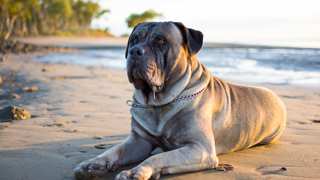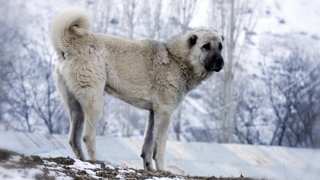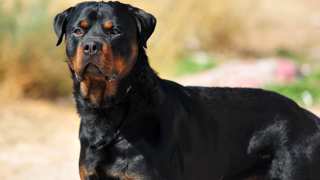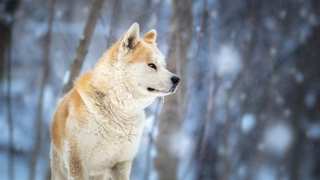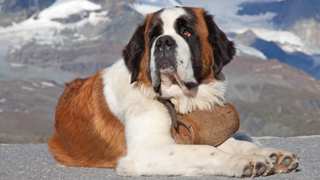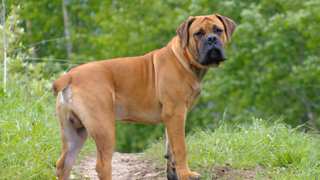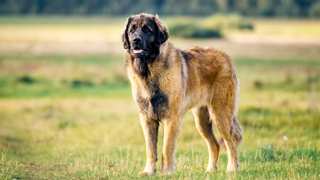Though large, these dogs aren't especially energetic, so Greater Swiss Mountain Dog exercise requirements are basically moderate. Since they were originally developed to be working farm dogs, Swissys are task-oriented, and will need activities that stimulate them mentally as well as physically. Interestingly, these dogs are known to become bored more easily than other breeds, so several short exercise sessions throughout the day are recommended to keep them occupied.
The typical adult Swissy, depending on its age and overall activity level, will need about 45 minutes of proper exercise per day--which you can accomplish with several short walks and a couple of brief periods of play. You can start exercising your Swissy puppy at 3-3½ months of age by taking it on short (5- to 7-minute) walks, then you can increase the walks' length and frequency as the puppy grows.
Some important precautions to consider when exercising your Swiss Mountain Dog: first, puppies younger than ten months old shouldn't participate in activities that include a lot of jumping, running on hard surfaces, or navigating of stairs, as doing so can injure their still-developing joints and bones. (And Swissy pups have a big growth spurt from about 4-7 months, so owners should take extra care not to overexert their puppies during that time.) Regardless of age, all Swiss Mountain Dogs will do best if leashed while in public. These dogs have pretty high prey drives, and will instinctively chase small animals--birds, squirrels, cats, even small dogs--if given the chance; a leash will help you control your Swissy when it spies an interesting-looking critter. And finally: simply because of their massive size, these dogs overheat easily in hot weather, so it's best not to exercise them in sweltering temperatures; you'll also want to give your Swissy access to fresh water at all times.
Safeguards aside, it's extremely important to exercise a Swiss Mountain Dog several times every day. As previously noted, Swissys become bored quite quickly--and they'll become restless and destructive, and bark nonstop. So consistent, frequent exercise is great for the dog's peace of mind--and for your own sanity as well! Here are a few exercise ideas:
- Walking: Three 10-minute walks per day is a good target
- Tug-of-War: Great indoor, rainy-day activity; use a rope or old towel
- Swimming: Most Swissys love the water; introduce the dog to swimming as a puppy
- Canine Sports: Swiss Mountain Dogs can excel at cart-pulling, obedience trials, and other events
- Hiking: Excellent bonding activity in a Swissy's natural element; the dog can even carry the backpack
If your Swissy spends a lot of time indoors, it'll be good to give the dog access to one or more balls or chew-toys that will allow it to burn excess energy. It's also recommended that you have a consistent exercise schedule for the dog, such as walks after breakfast, lunch, and dinner and play periods in the morning and afternoon.
